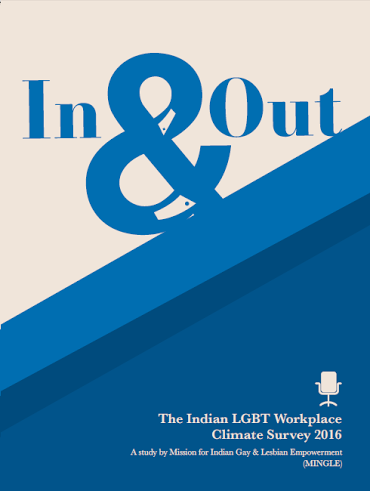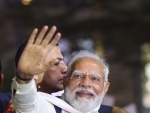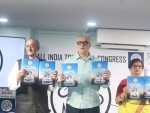
Study finds Indian workplaces are high on homophobia, low on openness
The aim was to assess the workplace environment vis-à-vis LGBT employees in corporate India. While the first such survey in 2012 had revealed many key insights, the second survey sought to follow up on those findings- especially in the context of homosexuality being recriminalized by a Supreme Court ruling in December 2013.
This survey focused on three sectors of the economy- Information Technology, Banking & Finance and FMCG & Manufacturing.
One Hundred LGBT respondents from various Indian and foreign multinational companies participated in the survey that showed interesting results.
The results were a mixed bag - more than half of LGBT Indians we surveyed could be legally fired from their jobs for being LGBT. Only a small minority- 4% are covered by same-sex partnership benefits.
The fact that 40% reported having faced some form of harassment for being LGBT remains an issue of concern.
The survey also showed that LGBT Indians are still not comfortable coming out at work- 44% are out to families, compared to only 25% to colleagues. Also HR/Diversity policies matter to a great extend in attracting talent- 65% say they would consider such policies before joining an organization.
"Interestingly, major drivers of employee engagement are dependent on whether employees are out, and feel supported- for example, 25% of “out” employees are happy with their performance evaluations compared to 3% of closeted ones. In general, openly LGBT employees- as compared to their closeted counterparts- have greater trust in their employers, have greater satisfaction with their rate of promotion, feel more loyal to their organization and are more likely to continue with the same company for a longer period of time. They also have lower levels of stress," the survey revealed.
Udayan Dhar, who led the research team, and is Diversity & Inclusion manager at Godrej Industries, said: “These results show our corporate bodies a glimpse of the workplace environment from the perspective of their LGBT employees- what eight hours at the office mean for nearly 5-10% of their workforce.”
The report was officially launched on June 5, at the Indian LGBT Youth Leadership Summit in Mumbai.
It was followed by a panel discussion on the findings which was moderated by Udayan.
Fabrice Houdart (Human Rights Officer at UN HCR) said: “The United Nations is resolutely behind LGBT rights because we consider it an integral part of basic human rights. I know some countries claim that it is not part of their culture or tradition, but we must understand that tradition cannot trump human rights.”
Reacting to a question that most multinationals do not replicate their global LGBT friendly policies in India, Pooja Shahani, Diversity & Inclusion head of Goldman Sachs said, “At Goldman Sachs, we ensure that such policies are applied uniformly across the globe. But beyond policies, we are focusing a lot on creating an inclusive culture.”
Ritesh Rajani, who co-leads the LGBT employee resource group at IBM spoke about the importance of coming out and its impact on people in the workplace – “This gives me an opportunity to spread awareness, and sensitize a lot more people, which often percolates outside the workplace as well.”
Radhika Vaidyanathan from Community Business found it noteworthy that 44% respondents are “out” at home compared to just 25% to their colleagues. “This makes me hopeful because if people are comfortable at home, they can be comfortable elsewhere as well eventually.”
Radhika also said that it is great that finally there is substantial India-specific data available on this issue.
Parmesh Shahani, head of Godrej India Culture Lab addressing the audience consisting of many HR and diversity professionals from various large multinationals urged them to start taking steps on LGBT inclusion like the way Godrej has been doing over the last two years.
“What is stopping you from doing so”, he asked.
He also wrote about the importance of straight allies in the Foreword of the report- “A special message for all our LGBT allies at the workplace- thank you for your support. You show us each day that you work alongside us and support us, that LGBT rights are not just our rights, but all our rights….just basic human rights. When you march alongside us at Pride, join our LGBT initiatives 'despite being straight', and refuse to laugh at homophobic jokes cracked around the photocopy machine, you give us hope that the inclusive India we are imagining for tomorrow already exists today.”
Support Our Journalism
We cannot do without you.. your contribution supports unbiased journalism
IBNS is not driven by any ism- not wokeism, not racism, not skewed secularism, not hyper right-wing or left liberal ideals, nor by any hardline religious beliefs or hyper nationalism. We want to serve you good old objective news, as they are. We do not judge or preach. We let people decide for themselves. We only try to present factual and well-sourced news.







